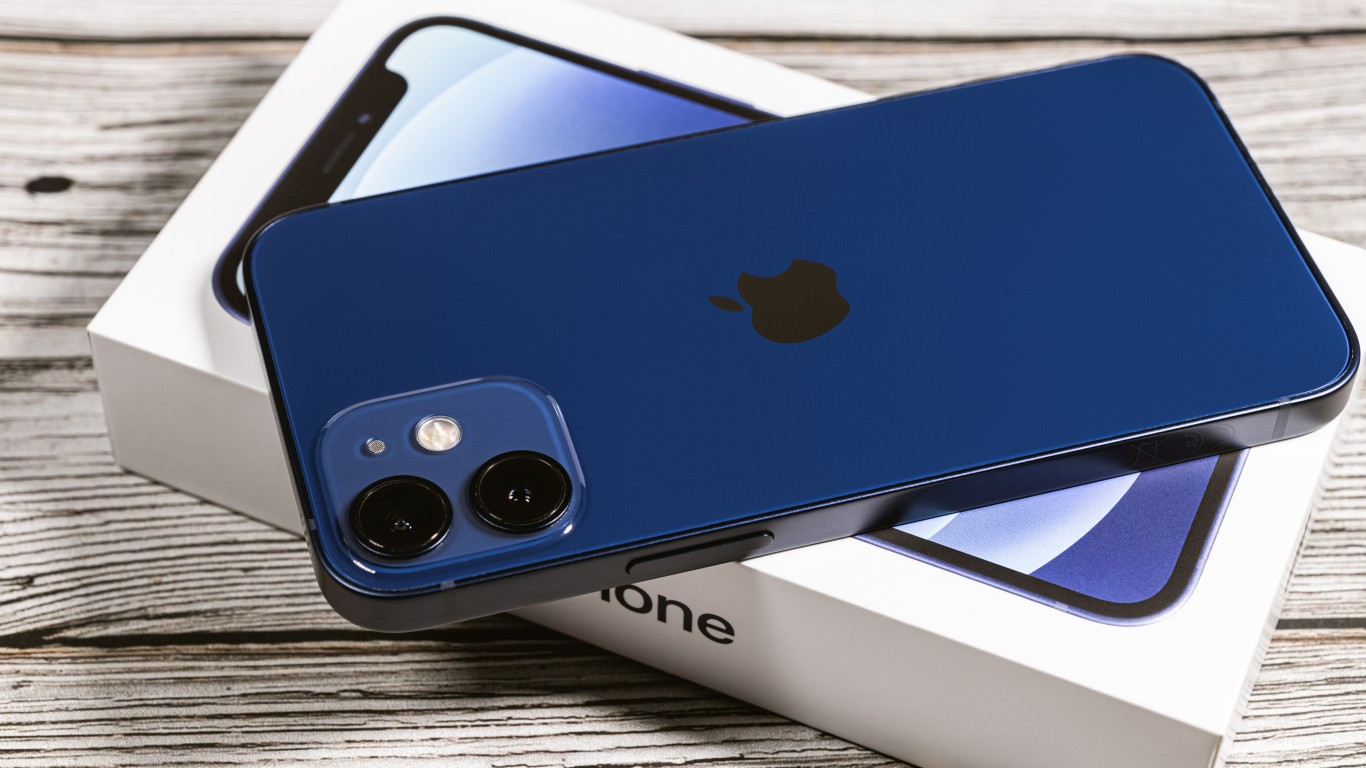
The nearer we get to the now-annual Apple Inc. (NASDAQ: AAPL) new iPhone release, the more reports there are about the phone’s new features. This year is no different.
On Tuesday, Bloomberg’s Mark Gurman said that the new iPhones will allow people to record video in Apple’s high-quality ProRes format, a new video version of the Portrait photo mode, and additional filters to make photos look better. What do all these improvements have in common?
The size of the files used to save videos and photos is going to get bigger. That means that people who take a lot of photos will need more storage. And more storage kicks up the cost of an iPhone. Apple’s added a new ProRaw file format to iPhone photos last year that uses up to 12 times the amount of storage space as the standard JPEG format.
Alex Webb, another Bloomberg writer, notes that Apple’s 128 GB upgrade, which adds $100 to the price of an iPhone, costs Apple just $20. Of course, people could just store their photos on iCloud, but 200 GB of iCloud storage costs $10 a month. Pay now or pay later — or even pay twice if you take a lot of photos.
Webb points out that the average selling price of an iPhone at the end of 2019 was $748. This past March the average price was $938. Is it any wonder that Apple is the world’s most profitable company?
Barron’s looked at chip suppliers that stand to benefit from the new iPhones. Apple will need more 5G modem chips, and the company’s main supplier of modems, Qualcomm, will benefit, at least unless and until Apple develops its own modem chips. In July of 2019, Apple acquired Intel’s modem business along with related intellectual property.
While there is no product announcement yet, neither has Apple scuttled the modem project. In May, Apple analyst Ming-Chi Kuo estimated that Apple would launch its own cellular modem chips in 2023. If Apple gets this right, the world’s most profitable company gets even more profitable.
Apple’s plan to scan photos stored in iCloud for child abuse material has generated a lot of discussion. Privacy advocates argue that opening a backdoor into a person’s phone is the first step down a slippery slope that could lead to government demands that Apple open other doors to facilitate surveillance.
AppleInsider has reproduced a Twitter thread from Corellium COO and security specialist Matt Tait spelling out why the U.S. government (at least) can’t force Apple to meet government demands for access. The short version is that by using the National Center of Missing and Exploited Children (NCMEC) as an intermediary, Apple is not subject to government demands.
According to Tait, that the government could compel NCMEC to deliver material is arguable, but “the Fourth Amendment [prohibiting unreasonable search and seizure] probably prohibits it.”
 24/7 Wall St.
24/7 Wall St.3 Buy-Rated Business Development Companies Pay Some of Wall Street’s Highest Dividends
Thank you for reading! Have some feedback for us?
Contact the 24/7 Wall St. editorial team.





